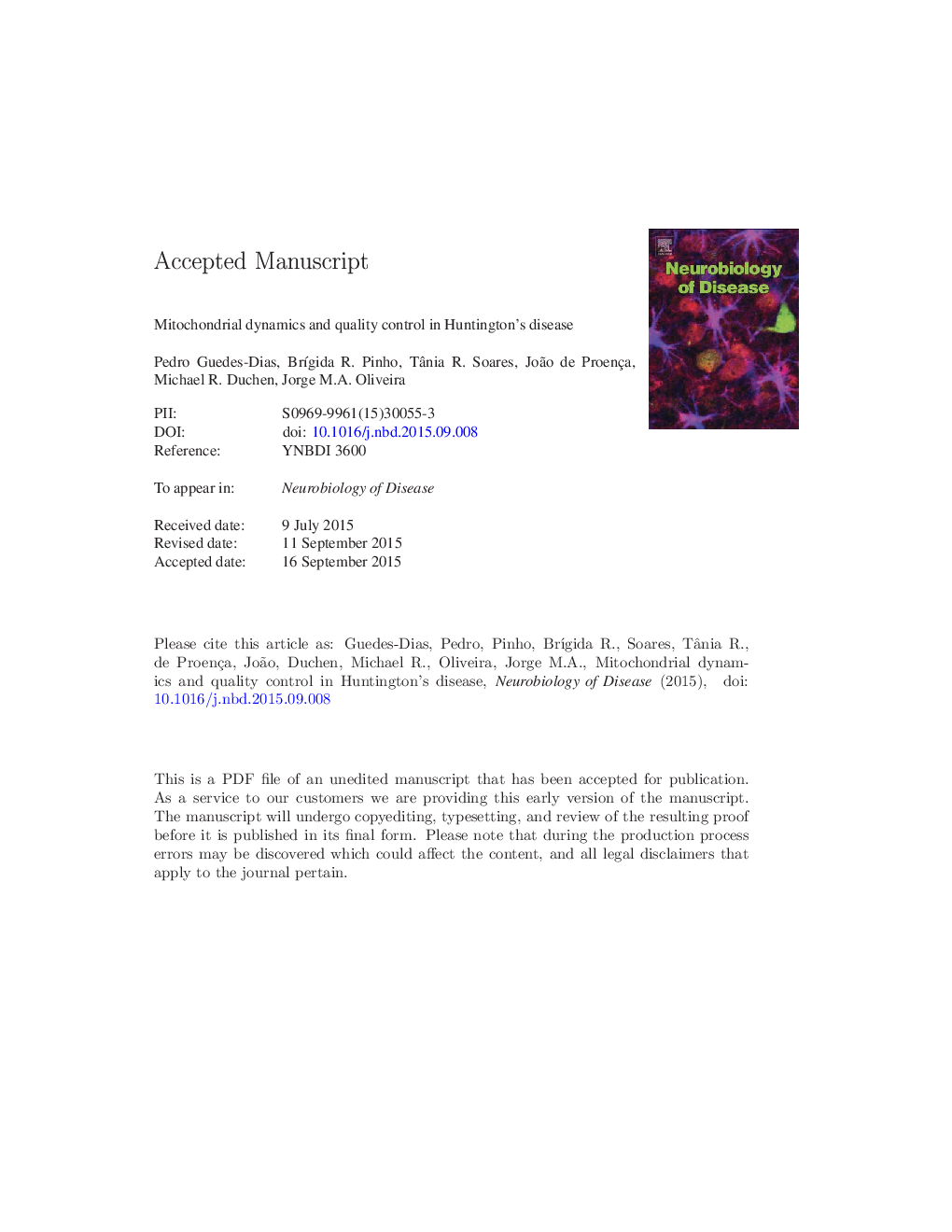| Article ID | Journal | Published Year | Pages | File Type |
|---|---|---|---|---|
| 6021360 | Neurobiology of Disease | 2016 | 33 Pages |
Abstract
Huntington's disease (HD) is an inherited neurodegenerative disorder caused by polyglutamine expansion mutations in the huntingtin protein. Despite its ubiquitous distribution, expression of mutant huntingtin (mHtt) is particularly detrimental to medium spiny neurons within the striatum. Mitochondrial dysfunction has been associated with HD pathogenesis. Here we review the current evidence for mHtt-induced abnormalities in mitochondrial dynamics and quality control, with a particular focus on brain and neuronal data pertaining to striatal vulnerability. We address mHtt effects on mitochondrial biogenesis, protein import, complex assembly, fission and fusion, mitochondrial transport, and on the degradation of damaged mitochondria via autophagy (mitophagy). For an integrated perspective on potentially converging pathogenic mechanisms, we also address impaired autophagosomal transport and abnormal mHtt proteostasis in HD.
Keywords
Fis1Hap1NMDARRANBP2PolyQPGC-1αmitochondrial Rho GTPaseBNIP3Drp1ATGMFNhttToMMFFMIDmHTTTIMFEZ1CREBDICAmbra1BCL2/adenovirus E1B 19 kDa interacting protein 3HDACNRFPPARGABARAPL1PINK1Dynein intermediate chainMSNsTrkBBDNFopa1NMDA receptorPTEN-induced putative kinase 1optic atrophy 1cAMP response element-bindingtranslocase of the outer membranetranslocase of the inner membraneHuntington’s diseaseHuntington's diseaseTRAKMitochondrial dynamicsRhesiPS cellsInduced pluripotent stem cellsNuclear respiratory factormitochondrial fission factorBrain-derived neurotrophic factorMitophagyMitofusinMitochondriaMiromedium spiny neuronsHuntingtinmutant Huntingtinhistone deacetylasemitochondrial fission 1 proteinautophagy-related proteindynamin-related protein 1huntingtin-associated protein 1Polyglutaminetyrosine receptor kinase Bperoxisome proliferator-activated receptor
Related Topics
Life Sciences
Neuroscience
Neurology
Authors
Pedro Guedes-Dias, BrÃgida R. Pinho, Tânia R. Soares, João de Proença, Michael R. Duchen, Jorge M.A. Oliveira,
